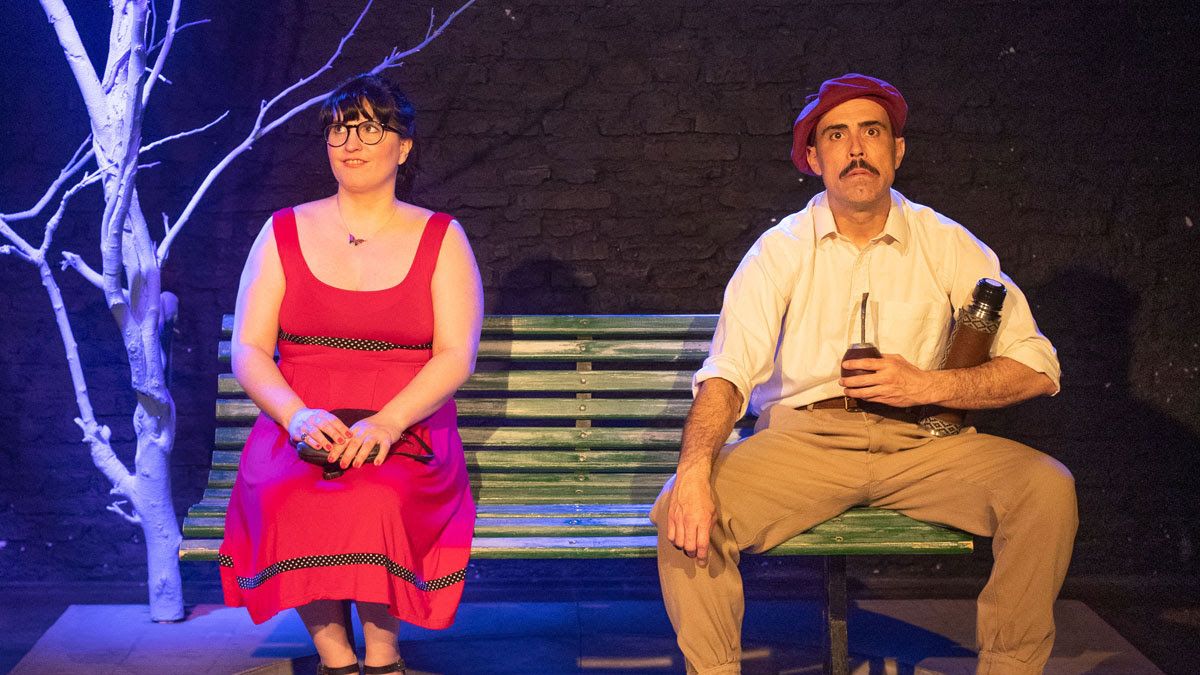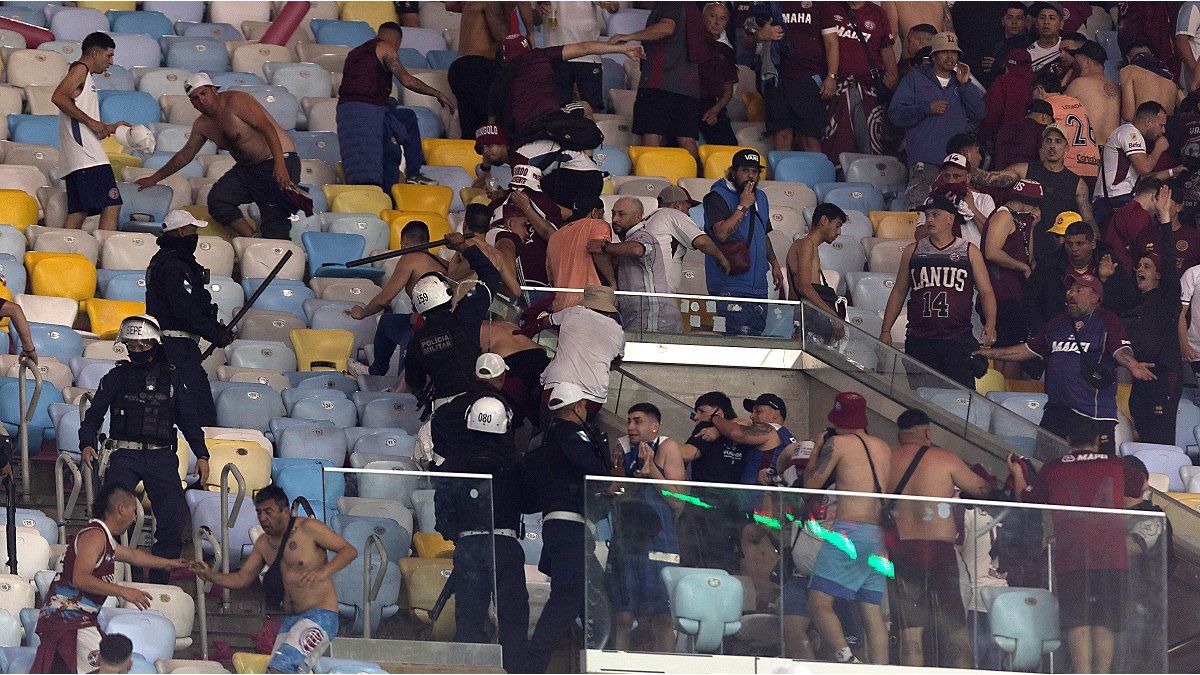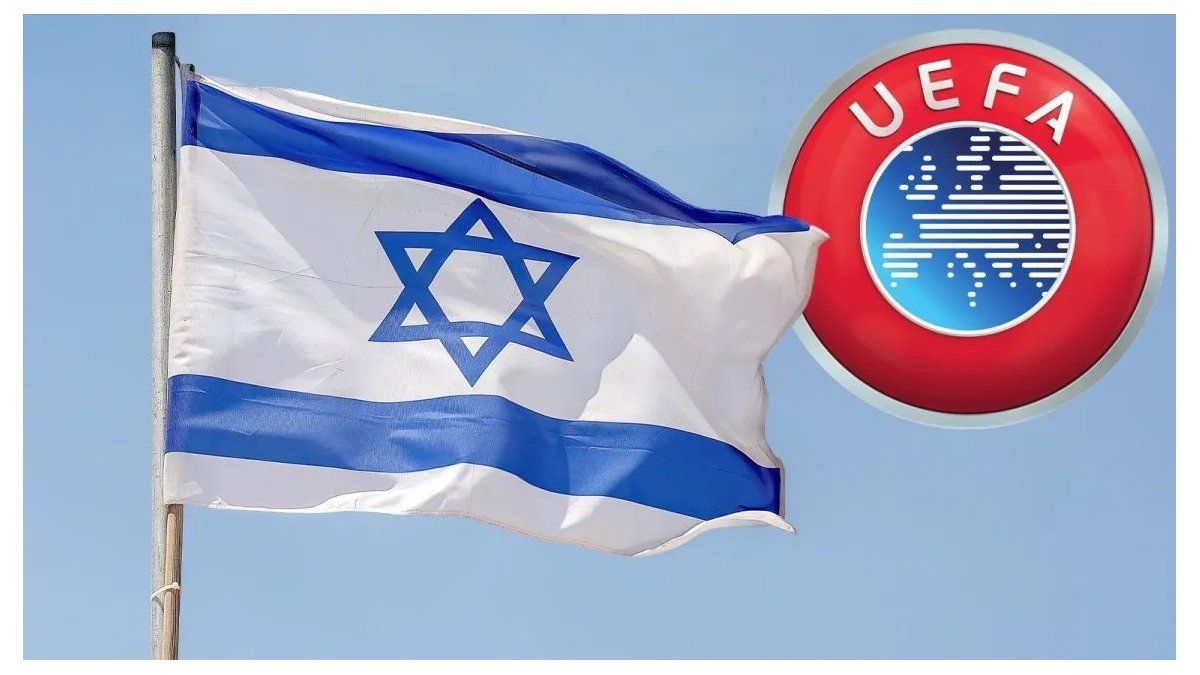“When I was writing the play something appeared. The characters did not exceed the sentence when speaking, so I wanted to replicate it in the 45 pages of the text. There is something about that meter or musicality that is fundamental, it enhances entanglement, humor and misunderstanding, says Leandro Airaldo about his work “Falling in love is speaking short and tangled”, that jumps from the off to Calle Corrientes.
After eight seasons in the alternative theater, with more than 300 performances and more than 40 thousand spectators, the work premieres at the Metropolitan, starting on Friday, January 10. Starring by Emiliano Díaz and Sol Rodríguez Seoane, She was the winner of multiple awards including the Trinidad Guevara, Argentores and others. We talk with Airaldo.
Q: What inspired you to write it, what was the kickoff?
THE: An image, the presence of a character on a bench in a square, Pedro, with his mate in hand, a country man, and a city girl. Added to that was the flight of a butterfly, they both followed that flight. In general I feel good when I start from some triggering, random, weightless images, that allows me to play. Not starting from a preconceived idea gives freedom of play. As I advance in that area I begin to look for meaning. With five pages I reread the material and look for the story. In this work, from being two strangers they go on to know each other as if they had known each other all their lives.
Q.: After so many years in the offscreen, the Met discovered the work, what was that journey like?
THE: We premiered in Nun, then El Camarín de las Musas and the uninterrupted seasons arrived except for the pandemic. Ten years of group work in which the public accompanied the interpretive quality of the protagonists, the particularity and essence of the text, but also the setting. It is a work that was sustained by teamwork, the head of production and how it is deployed in the rest. We love the work very much and in such a long time we feel a love that is transmitted to the public. There is something about what the work provokes that makes the material sustain and generate word of mouth. That is good for the theater, regardless of the press, the networks, what generates the movement is that word of mouth from the public. Theater is not a single thing, there are many things that intervene to illuminate the work, also the scenography, lighting, costumes, room technician. Theater is a complex art because many people are involved, so when it enters into a kind of communion, we can talk about a miracle.
Q: What themes does the story address and how does the conflict grow?
THE: It is a romantic comedy crossed by what the new comedy in Plautus goes through, where there are two great topics, love and money. In this is love and one of the faces of love is enchantment. The action that weaves the story is that relationship that they build, as soon as they meet the characters and begin to feel attracted. As they begin to attract each other, they begin to have more difficulty expressing that enchantment. The work is tense in that entanglement. Something appeared: the characters did not exceed a sentence when speaking, so I wanted to replicate it in the 45 pages of the text. There is something about that metric or musicality that is fundamental, enhances the entanglement, the humor, the misunderstanding, the quid pro quo, understanding one thing for another. There are complications from the gag, the gesture, the verbal comedy, to get closer.
Q: What adaptations do you make to take it to a larger room?
THE: We went from 60 seats to 600 but the Metrpolitan was always emphatic in respecting the essence of the material, not making changes to the scenery or setting, so it remains the same. When working there we will see in relation to projection, lights, space, there will be touch-ups and modifications that enhance the material. We did the play ten years ago but we took it to larger venues like the Coliseo Podesta, or the Argentine hall of the CCK or the Cultural San Martín where we performed and there is always some of that humor that is enhanced in larger venues.
Q: How do you see theater and culture?
THE: It is a complex moment for those areas but in general for life itself, it is not simple, there are cuts but there is something about our theatrical activity, we are makers who are not used to but are related to producing from uncomfortable and insufficient places in terms of resources. We work on the conflict and there is a reaction of the activity. It is important to act collectively, to unite, accompany each other, help each other, in theater and life. There are economic cuts but also the targeting of culture for no reason from a place of cultural battle.
Source: Ambito




